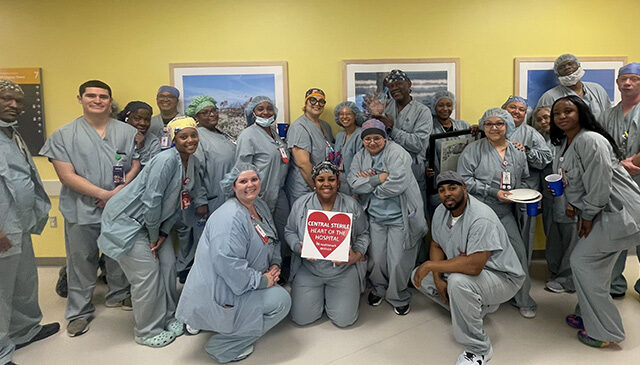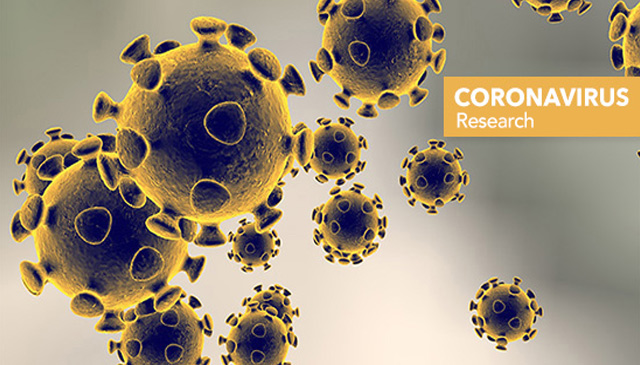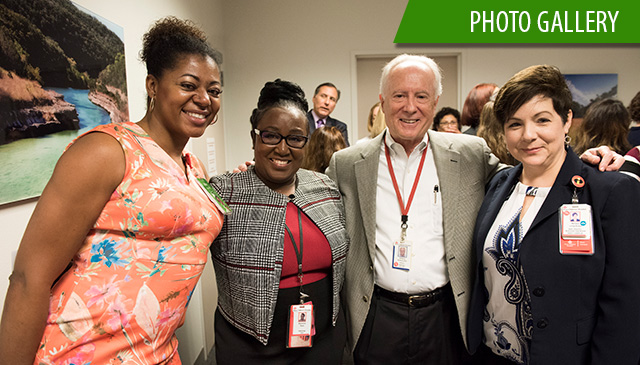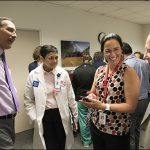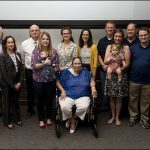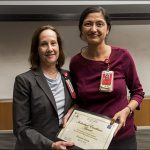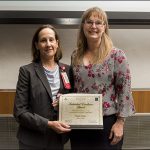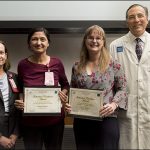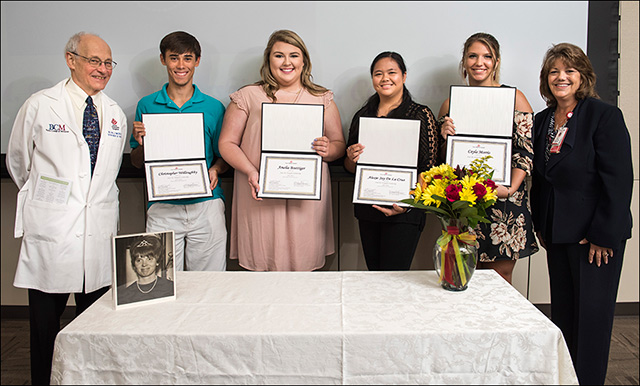June 1, 2020
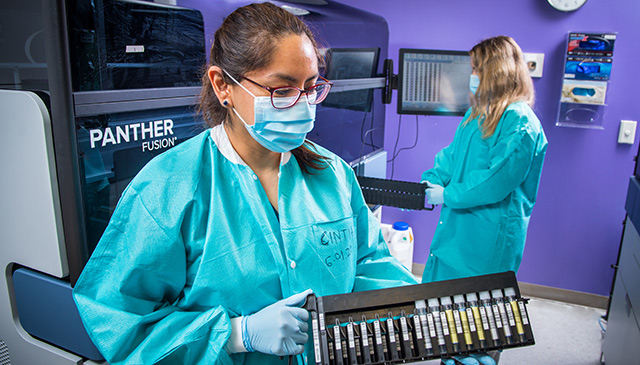
Since the global pandemic began three months ago, our Pathology team and collaborative partners across the Texas Children’s system continue to lead the way in diagnostic testing for COVID-19.
On April 29, Texas Children’s became the first hospital in the Texas Medical Center to launch rapid molecular testing and antibody testing for SARS-CoV-2, which has enabled the organization to provide care to patients who have delayed diagnosis or complications due to COVID-19, and those patients who may have symptoms of the multi-system inflammatory syndrome of children associated with COVID-19.
To date, over 12,000 patients across our campuses and community locations have been tested for COVID-19. Texas Children’s has also provided testing to nearly 1,000 inpatients at Harris Health System as part of our efforts to support our peer institutions in the Texas Medical Center. Today, Texas Children’s has the capacity to perform 800 COVID-19 tests per day and are rapidly approaching 1,000 tests per day.
While these numbers are impressive, Texas Children’s Pathologist-in-Chief Dr. Jim Versalovic says our measurement of progress is not solely about increased volume, but more importantly, how we apply these tests to create the greatest impact for our employees and patients, while keeping everyone safe.
“We now have an expanded menu of COVID-19 tests available,” said Versalovic. “As part of our robust surveillance testing program, we have the ability to rapidly test patients within 2-3 hours who need emergent medical procedures, surgeries and obstetrical emergencies at our three hospital campuses. Additionally, we are taking advantage of our drive-through COVID-19 testing capabilities. All of these efforts combined have made a profound impact on the quality care that we provide to our patients.”
Along with Employee Health and our Infection Control partners, Versalovic says we also have the capacity for more COVID-19 surveillance testing of our employees to ensure their health and safety.
Leveraging new technology
Coupled with the organization’s ability to provide additional COVID-19 testing options, Texas Children’s launched the Hologic Panther Platform on May 13, a new, state-of-the-art technology that has helped the organization expand its testing capacity and capabilities, accelerate turnaround times from specimen collection to results, leading to remarkable improvements in workflow efficiencies in the laboratory.
Prior to using this testing platform, the pathology team conducted 400 COVID-19 tests per day. Once the results came in, the data had to be manually inputted into the patient’s electronic medical record in Epic. Now, as test results flows into the Panther Platform system, they are automatically populated into Epic. Through the use of the Panther Platform, Texas Children’s has close to doubled its testing capacity.
“When combined with other testing options, the Panther Platform puts us well within the range of 800 to 1,000 tests per day,” said Dr. Jim Dunn, director of Medical Microbiology and Virology. “As results come off the Panther Platform machine and are electronically interfaced with Epic, the lab technologists can quickly review each result and then release it to the patient’s chart. This automated testing process has significantly improved our workflow efficiency by reducing turnaround times from 10 hours to six hours.”
In addition to leveraging this technology, cross-training technologists from other areas of the laboratory – Molecular Oncology, Cancer Genomics – has allowed Pathology to expand its daily hours of operation, which along with other factors, have helped the organization expand testing capacity and capabilities.
“Our approach to doing as much as possible for our patients, employees and staff regarding SARS-CoV2 testing has really been a collaborative team effort,” Dunn said. “We’ve been able to marshall all possible resources including both new and existing instruments, reagents, other supplies, and personnel.”
COVID-19 testing task force
Texas Children’s COVID-19 Testing Task Force has also played an instrumental role in COVID-19 testing. The task force is comprised of multi-disciplinary team members from Texas Children’s Pediatrics, Infection Control, Infectious Diseases, Surgery, Obstetrics and Gynecology, Pediatrics, Pathology, Nursing and Human Resources.
Over the past two weeks, this group has worked tirelessly to develop a prioritization schema for SARS-CoV2 PCR testing using the best available evidence and incorporating current and projected volumes. The prioritization schema identifies those patient populations – patients scheduled for an appointment or procedure and patients who are presenting for care — for whom testing is prioritized to best meet the overall goals of promoting the health and safety of our patients, their families, employees and staff.
The task force developed a process map outlining patient eligibility criteria to help providers identify patients eligible for testing either in the ambulatory setting or prior to their arrival, at one of our COVID-19 drive-through testing sites at the Medical Center Campus, West Campus and The Woodlands Campus.
“As variables change, including patient volumes and our ever increasing testing capacity, the eligibility criteria for testing will require changes in our response to the COVID-19 pandemic,” said Dr. Brent Kaziny, medical director of Emergency Management. “While there are many worthy reasons for COVID-19 testing, it is important that we continue to conserve and prioritize this limited resource. We encourage our providers to keep us informed about other populations that should be considered for testing eligibility.”
For more information about COVID-19 testing at Texas Children’s, go to the COVID-19 Communications Page on Connect where you will have access to the electronic Testing Request Form, patient eligibility criteria for COVID-19 testing, Frequently Asked Questions and a list of drive-through testing locations.
